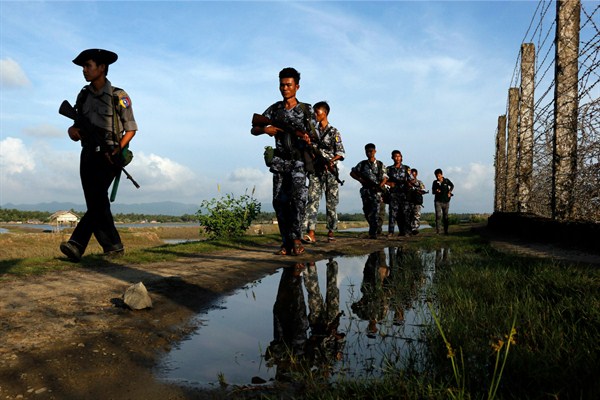Over the past month, the situation in western Myanmar’s Rakhine state, which has been extremely volatile since an eruption of violence in the early 2010s, has deteriorated once again. Following an attack on police outposts near the border with Bangladesh in early October, which killed at least nine policemen, Rakhine has been on edge.
Some human rights groups have reported that the security forces and police, as well as individuals, are striking back at the state’s ethnic Rohingya, since militant Rohingya Muslims were believed to be behind the killings of the police. Although the security forces, which are dominated by Buddhist ethnic Rakhines, supposedly have been targeting only suspected militants, they have spread their net widely, unleashing a wave of destruction. Since the police attacks, the security forces have reportedly killed dozens of people in Rakhine State.
This increasingly toxic environment threatens to undermine the government’s plan to promote reconciliation between the Muslim Rohingya and Buddhist Rakhine in ethnically and religiously divided western Myanmar. Many observers criticized Myanmar’s de facto leader, Aung San Suu Kyi, for largely ignoring the crisis in Rakhine ahead of last year’s historic elections, when her National League for Democracy assumed power after more than a half-century of military rule. More recently, though, her plan to promote reconciliation has received more praise from Rohingya groups and international rights organizations.

